There can be no doubt that the COVID-19 pandemic has caused a lot of trouble for people interested in running conferences in 2020. Conferences typically require indoor spaces and necessitate a large number of people sitting in a room together to learn more about a subject from a speaker.
With social distancing rules still in effect, traditional means of running conferences simply aren’t possible to carry out safely. However, as the world comes to terms with the coronavirus, it is becoming more apparent that this is something that we made to live with for a long time - and this means making adjustments, at least in the short term.
Here we take a look at some of the best ways that you can plan a conference in spite of all of the uncertainty surrounding COVID-19.
Understand government guidelines
The first thing to say is that government advice surrounding COVID-19 and what businesses, organisations and events are allowed to do is extremely changeable. Under the current regulations, conferences will be able to resume from 1st October with a number of restrictions in place surrounding how they are run.
Of course, it is important to mention that government advice is changeable - just because conferences can go ahead under current plans does not mean things can’t change. It is important to stay up-to-date with the latest government advice to ensure that you understand the guidelines properly.
Consider hosting it outdoors
Currently, indoor conferences can go ahead from the specified date. However, doing so creates a number of challenges for the organisers, specifically surrounding social distancing. One of the most effective ways to overcome these challenges will be through hosting your conference outdoors. Social distancing still applies outdoors, when proper precautions are taken, the rules are more lenient, which could give conferences that would have otherwise been impossible, the chance to run.
But of course, if you are choosing to have an outdoor conference, it is always best to look into ways you can protect attendees against inclement weather.
“Since the pandemic, we have a had a lot of interest from conferences looking to use our large marquees,” says Katherine Hudson of The Pearl Tent Company “our tents allow conferences to be safer out in the open air but protected from the unpredictability of the elements - we even offer a bespoke 3D CAD modelling service to show clients how it is all going to look, making the whole thing much easier to plan”.
Go digital
An important caveat set down by the government regulations is the importance of adopting a ‘digital first’ approach to your conference. That remains removing some infrastructure that has previously been considered a vital element of conferences - badges and lanyards, as well as gift bags and paper handouts.
Attendees can make use of their own smart devices to access any required information about the conference. And all elements of registration and entry must be contactless.
Safety and controlling movement is a much larger priority
It is certainly the case that the COVID-19 pandemic has created a situation in which conference planner must think much more about health, safety, and following government guidelines on social distancing.
A key quote in the government guidelines states that “events will be planned around one way systems for visitors.” This means more than ever, conferences have to take into account things like directions of movement, proper spacing between individuals, and putting safety precautions in place.
This means that for your conference you might need to work with specialists that you have never considered before. Maltaward is a civil engineering specialist company that provides concrete barriers and other security devices. Through COVID-19 these have become important for conferences.
“Our concrete barriers have always been used for managing crowd flow at events,” says Jim Treacy, Operations Manager at Maltaward “we are now seeing events that would have previously taken place indoors, that now need barriers and pedestrian guards to ensure all movement is one-way.”
Final thoughts
As with any business or indoor event, all conferences need to prioritise additional cleaning measures and ensure that spacing is in place. There is no reason that conferences can’t run safely, but everyone has a responsibility to do what they can make sure everything is as safe as possible.
As a result of the coronavirus outbreak, hundreds of businesses across the globe have had no choice but to cancel the conferences and conventions they had been planning on either hosting or attending.
From small business-focused conferences to large consumer-based events, a huge number of events have succumbed to the COVID-19 outbreak over the past few months, forcing them to move from their typical environments to virtual online chats.
While for now, at least, the days of conferences being held in stunning worldly locations, bespoke marquee tents and large business centres are over, having the flexibility to network online has proved incredibly beneficial in light of the pandemic.
But which are the best forms of video conferencing software to use? This article looks at answering this exact question, separating the best from the rest in the world of video calling platforms.
1. Zoom
While Zoom may have been around for a while now, its popularity has soared over recent weeks as more and more people have turned to it to arrange meetings, huddles and conference calls.
The free software originally came with a 40-minute time limit on all its video conversations, which was later scrapped to enable calls to last longer if required.
Now one of the most popular forms of video conferencing software out there, the free version of Zoom enables users to host up to 100 participants and access free one-to-one meetings whenever they need.
2. Google Hangouts
Google Hangouts is another form of video conferencing software that has seen its popularity soar in recent weeks. While its free version has been available for a while now, this originally didn’t offer many of the enterprise-level tools that modern businesses typically demand.
In response to this though, the company announced that it was giving free access to the advanced features on its Hangouts Meet platform until the first of July. This, in turn, enables users to host meetings with up to 10,000 viewers, or 250 visitors, in a single domain for free.
As an added extra, using Google Hangouts also enables businesses to record and save meetings to their Google Drive, meaning they can listen back to anything they may have missed the first time around.
3. Microsoft Teams
After announcing back in 2018 that they were making Microsoft Teams free for smaller companies to use, Microsoft delighted SME business owners all around the globe.
Now, in light of the COVID-19 outbreak and the growing demand for remote working, they have extended that honour to larger companies as well, announcing a free six month trial for the premium tier of Teams.
Originally, this trial was only available to hospitals, businesses, and schools struggling in China, where the outbreak began. But, as the virus has grown and spread worldwide, Microsoft has now decided to make its technology available throughout the globe.
4. Whereby
Whereby is a video conferencing tool that has been designed with one thing in mind: ease of use. It appears they’ve delivered on that as well, providing smaller businesses with a highly effective form of video software that enables chats to be set up seamlessly and joined even easier.
The only downside with the system is the lack of participants it can handle; on the free plan, only four people can join at one time, while the Pro plan offers a still fairly limited capacity of 12.
These numbers are certainly a lot lower than the other forms of software listed here, suggesting Whereby aim for more of a quality over quantity approach.
5. Skype
No list of video conferencing software would be complete without one of the originals itself: Skype.
Formerly known as Lync, this software has been around forever and is much-loved by many business owners. However, over the years, its technical prowess has unfortunately been surpassed, and the software has gained a reputation for connectivity issues, freezing up and having a ‘clunky interface’.
It isn’t all bad though, as the software also offers a number of helpful additional features. Whether it be whiteboarding, posting polls, sharing documents, using instant messenger, making international calls or hosting Q&A sessions, Skype can certainly still hold its own in the world of video conferencing tools for business.
If you know anything about operating a successful event, you will know that doing so extends further than booking a venue and hoping people attend. There are a ton of businesses looking for conferences to attend, whether that be to meet others in the industry or to get their name out there. Conferences come with a number of fantastic benefits for those who attend, but only if the conference is a successful one. Even with a great deal of experience in event organizing, organizing a conference can be a struggle unless you pay attention to helpful tips and tricks. If you want your conference to be the one people are desperate to attend, you need to ensure it’s well organized and runs well from beginning to end.
Top Tips When Organizing a Conference
-
Use Signage and Banners to Direct Attendees - If you are organizing a big and busy conference, it’s important for attendees to know where they are going. Not only does this make the entire conference experience an enjoyable one for them, but it reduces the chances of confusion surrounding directions and people finding themselves lost. There are a lot of different ways to use signage, but roll up banners continue to be one of the most popular. You can use banners to highlight an area, to point people in a certain direction and to advise what’s on offer.
-
Advertise the Conference Beforehand - Though you may have a fantastically organized conference, it’s a waste of time and money if people don’t attend. In order to attract businesses and attendees to a conference, you need to advertise it beforehand. This means posting about it on social media platforms, emailing contacts to let them know about the conference and having news about it featured on the website. There are a lot of other conferences to contend with and therefore yours needs to stand out. If someone is only planning to attend one conference, you want them to see yours and pick it.
-
Continually Remind People About the Conference - It’s not enough to simply attract attendees when the conference is first announced, you need to continually remind people that it’s coming up. A lot of people book conferences months in advance, which means that there’s always a risk of it being forgotten about nearer the time. This is why it’s important to provide updates, news and reminders. These reminders could also attract people who weren’t planning to attend the conference to begin with, but have now changed their minds. You should aim for the conference to be one that people know the name, date and location of off the top of their heads.
-
Offer More than the Average Conference - When you are organizing a conference, it’s important to go above and beyond what others are doing. There’s no shortage of conferences out there, which means everyone has a choice on which they want to attend. If you want people to choose yours, you need to offer something extra. Think about what else you could offer, such as incentives or special guests, and find a way to ensure your conference stands out. You don’t want the conference that you have organized to be known as one that’s standard, generic or boring.
It’s safe to say that organizing a conference takes a lot of hard work and energy, but there are ways to ensure the process is a smooth and straightforward one. When you are organizing any event, plan ahead and give yourself enough time to put everything into action. You don’t want to be left leaving anything until the last minute.

Are you thinking of setting up as an events planner? It’s a vibrant industry to work in but before you go ahead and register your business domain name, ask yourself if you’ve got what it takes. Whether you’re a student looking for careers advice on how to break into the events planning business, or you’re an experienced professional ready for a new challenge, here are some useful pointers.
Which skills do you need?
A recent survey named “event coordinator” as the 5th most stressful job in the world. It’s a fast-paced, demanding job that requires a certain set of vital skills and personality traits which are worth knowing about before you commit to a career in this sector.
Relationship builder
Excellent people skills are a non-negotiable pre-requisite that every event manager should bring to the table. You need to be equally comfortable connecting with suppliers and customers, senior executives, attendees and staff, be a confident yet charming negotiator and able to resolve conflicts calmly but resolutely, all while maintaining your sense of humour. Whether you’re working in a team or on your own, a good event planner will stay calm under pressure, treating everyone with respect.
Project manager
Organisational and project management skills are key requirements to ensure a smooth workflow from the first briefing to the event itself. From venue bookings to supplier contracts, setting up your marketing and talking to sponsors, ticket sales and RSVPs, not to mention the logistics on the day, your to-do list will be huge. The best planners are highly accomplished multi-taskers with fool-proof systems, set-by-step checklists and tools, making sure that nothing falls through the cracks.
Problem solver
With event planning, the devil is in the detail, and you should always expect something not to go according to plan. The skill is to focus on the big picture while keeping track of the little things and find solutions to the challenges that arise. “What if you’ve booked an outdoor event and it rains? What if a keynote speaker is running late or the live band is a no show? What if your computer fails or the venue has a power cut? Do you have a Plan B? A good event planner thinks ahead, assesses the risks of what could go wrong and always puts contingencies in place.”
Commercial operator
Whether you’re planning private birthday parties, organising charity events or hosting corporate conferences, never forget that you are operating within the confines of a commercial environment. From securing quality sponsors to booking stunning venues, sourcing the right suppliers and a long list of other things, you need to make clear decisions on the most suitable options available, using your commercial acumen to negotiate the best deals to bring your event in on budget.
How to get experience?
You don’t need a university degree to become an event planner although events management degrees are available, both at undergraduate and postgraduate level, for those who prefer to get an academic grounding. There are also professional certifications that you can pursue at any time, including those offered by specialist providers Event Academy and The Event School London.
Having said that, the only real preparation for working in the industry is on-the-job experience. Some skills simply cannot be taught, and are best learnt on the ground while helping to run real-life events. The UK events industry is a complex sector, worth billions of pounds. If you want to be a successful events planner, it’s essential to gain a clear understanding of the industry – and there is no substitute for rolling up your sleeves and getting stuck in.
If you are starting out, look out for volunteer positions to obtain valuable real-life experience as the first step on the career ladder. Contact local events directly to see if they need an extra hand, and get in touch with professional event organisers and your favourite charities to ask for volunteering opportunities.
Internships are a good way to gain hands-on experience as an events planner, giving you a realistic taste of what the job would be like. Or you can apply for administrative/marketing assistant, event/meeting coordinator and similar entry-level jobs and prove yourself in the commercial environment.
Starting your own business
Once you’ve got the industry experience, the contacts and the proven drive to succeed in this competitive industry, you may feel ready to strike out on your own. But where to go? The events sector has several distinct niches – vertical markets such as corporate events, weddings, art/sports events and so on, as well as horizontal sub specialisms such as catering or venue finding. Think carefully about your existing industry contacts and experience, and your passions, and find the niche that best suits your skillset.
Setting up on your own requires a sound business plan and sufficient funding, plus compliance with industry regulations and any licences or permits you may require. You should also have a sound knowledge of legal issues such as public liability and professional indemnity insurance, written contracts, health & safety regulations, alcohol and entertainments licences and employers’ liability insurance.
You will need to register your business with HMRC for tax purposes, and find a suitable company name that captures the attention of your clients, establishes your brand and clarifies what your business is all about. Register the domain name and think about building a website to help with your marketing, while setting up social media accounts on Facebook, Instagram and Twitter to widen your reach.
The quality and quantity of good relationships with suppliers is the backbone of your event planning service. From wedding cake designers to comedians, AV solutions to post-event surveys, suppliers are hugely important for your business, and it’s vitally important to build lasting relationships on the right terms.
Finally, identify your key marketing channels to help you win clients. While digital marketing around your website should be optimised, don’t forget that events and hospitality are people industries and your most successful marketing strategy will be using the human connection.
If you are planning an event it can often be hectic and challenging attempting to keep on top of everything. This can lead to planners missing out crucial details that can seriously affect the end result. In this article we take a look at six things that event planners often overlook, leading to frustrating issues. Make sure that you remember these issues for your next event.
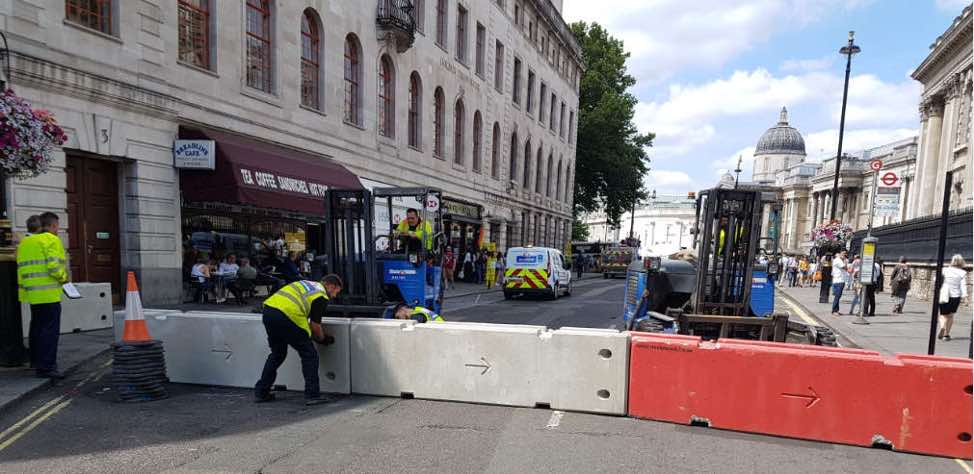
1.Traffic control
If you are running an event that requires vehicle access anywhere near pedestrians, then it is essential that you put measures in place to defend people against the possibility of being struck by a moving vehicle. This is something that many event planners forget to factor into their operation, but it can be a crucial aspect of health and safety.
It may be necessary to have fencing or concrete barriers installed to create a barrier between pedestrians and vehicles or equipment.
“Concrete barriers and blocks are a fast and effective way to manage traffic, preventing unauthorized access to your event site and securing unmonitored premises” - Maltaward
It is advisable to discuss the potential options with a health and safety specialist who can provide you with advice and insight into how to best manage the vehicles on your event site.
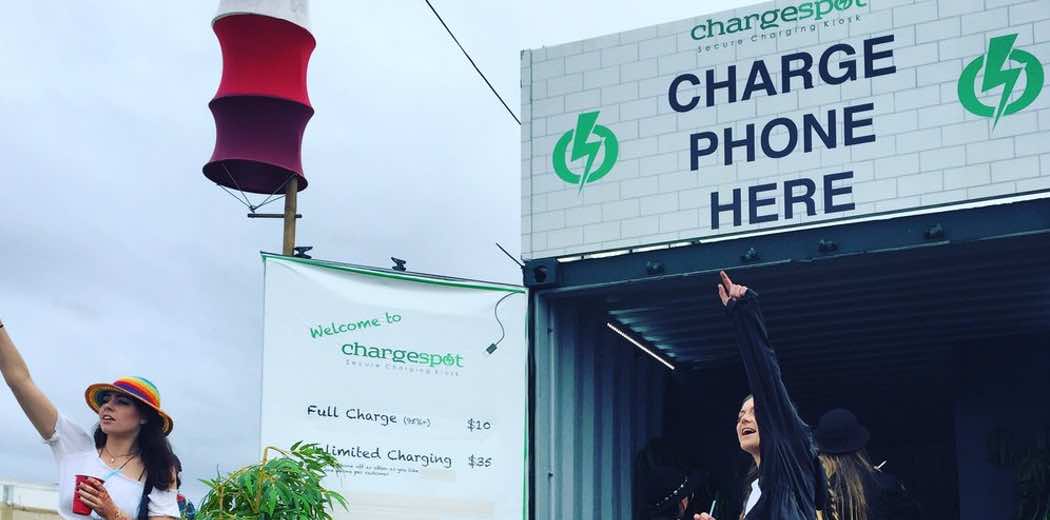
2. Digital access
It can be something that gets overlooked simply because it’s such as obvious necessity in the modern world that we all take it for granted – but it very common to find events that don’t provide access to Wi-Fi. Many event locations are in areas where signal is limited, and while this might be a pain for attendees, it can make the job of managing the event impossible for staff. It is essential that you distribute Wi-Fi passwords and make them easily accessible.
It is also a great idea to offer charging stations around the event. Once again, these may be useful for attendees, but they can be essential for staff who may need to have a working phone charged all day.
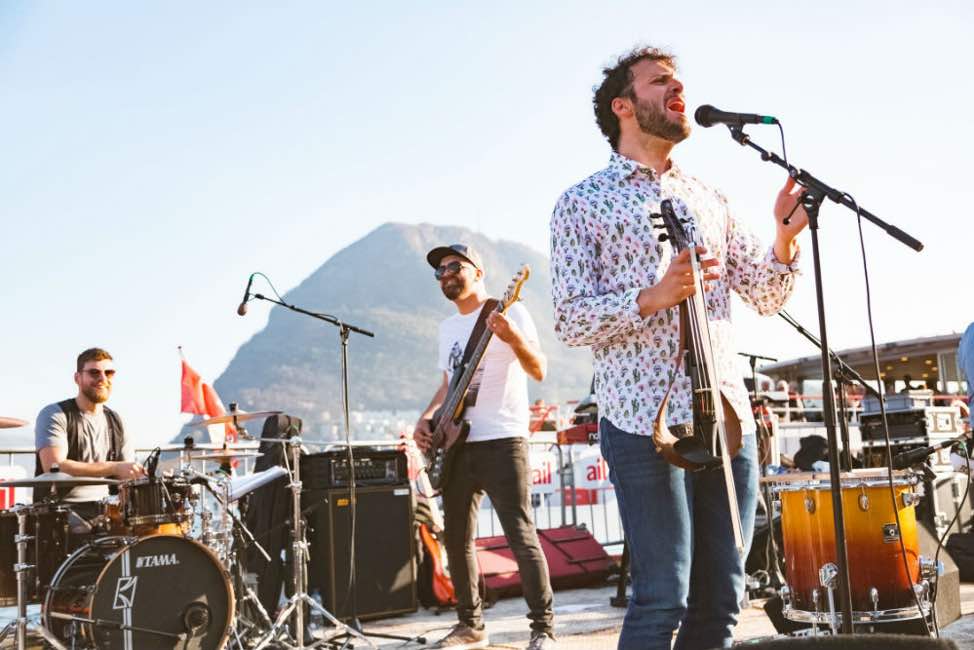
3. Music permits
Putting on background music at an event might be a little might complicated that you imagine. You might assume that it is fine to play music through a streaming service such as Spotify that you pay for, but actually, this generally is not the case. These services (and even songs that you have purchased through iStore or on CDs) are only licensed for personal use, and when you are playing the music at an event it is considered to be a public performance, which is not covered by a personal use licencs.
In general, you need to purchase a licence to play recorded songs that are owned by someone else. Additionally, if you are having live music played at your event then you’ll need a permit for that. The cost can vary, but if you are discovered to be playing music at an event without an appropriate license you can be heavily fined.
4. Diets and allergies
If you are providing catering at your event then you need to ensure that you are putting the correct procedures in place to deal with different dietary preferences, and uphold allergy advice. It can be a good idea to understand the numbers involved beforehand – if you have a booking process for your event, ensure that people have the opportunity to state their allergies issues and dietary preferences. Doing so can help you to manage food and drink effectively.
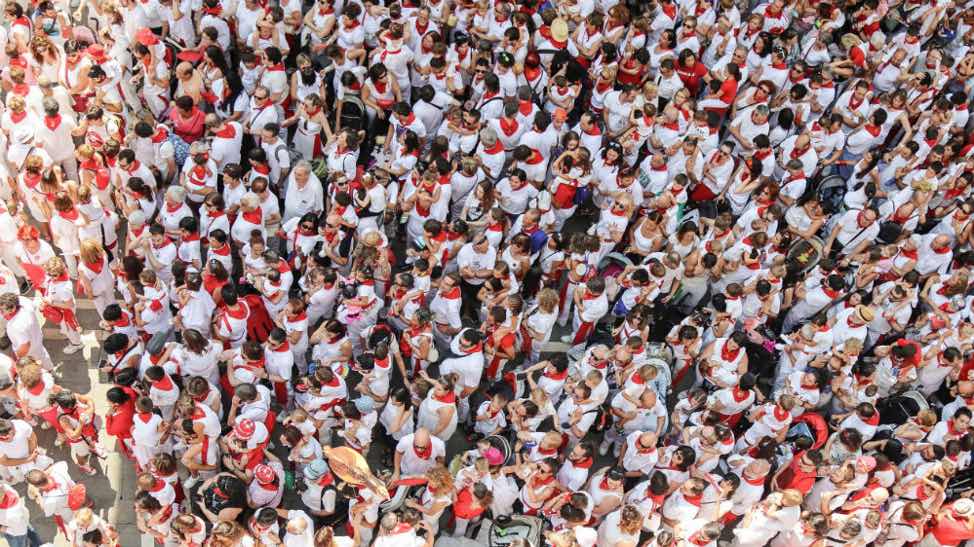
5. Capacity
This one has meant that many events have come unstuck and had to turn away visitors – in some cases paying customers. Do you know the capacity of your event venue? It may well be the case that you don’t assume that you will reach the capacity, but nevertheless, it is important to limit ticket sales so that you cannot go overcapacity, as this breaches health and safety laws.
Also, remember that if your event is spread across the whole day, there will be peak times. You need to ensure that your venue has the capacity to deal with these peaks.

6. Alcohol license
This is something that it is important to sort out sooner rather than later. If you want to serve alcohol at your event then it is vital that you should get an alcohol license, which can take some time to get approved. You might have some unhappy visitors if they turn up at your event expecting to drink, and finds that alcohol is prohibited.

In the opening hours of a conference, audiences are naturally full of energy and enthusiasm – interested in what they are about to learn and engaged with the day. But after a day of listening to talks, it can leave just about everyone tired and drained.
So, if you are speaking last, you might worry that this means that you talk is going to get lost. Thankfully there are plenty of things that you can do to make the most of your presentation. Here we offer practical tips for speaking last.
Don’t use this session to pitch your product
As a conference is drawing to end you have to accept that you audience has had a long day where they will have had to listen to a large number of talks. Their attention span will be at its natural limit, and the last thing that they are going to want to hear is little more than a sales pitch for your product. They will switch off, zone out, and your session will be wasted.
If you are due to go on last at a conference you are going to need to make sure that you are being as engaging and interesting as possible. And you aren’t going to do this with a lengthy diatribe about the advantages of using your product over another.
Give them a hook instead – provide something interesting to re-awaken their senses. You can then allow your product or service to come up naturally rather than trying to spoon feed it to an audience that really won’t be hungry.
Use new technologies to keep your session fresh
It is essential that your final session stands out in the minds of attendees. Your audience will be going into your talk with the preference that you don’t drag on. They will have already been supplied with lots of ideas and things to think about; they don’t want to be listening to a presentation that is a lot of talking.
This means you need to keep your session fresh and engaging. And one of the best ways to do this is to incorporate new technologies which can then stick in their minds as they leave. A great example for a conference would be something like an audience response system (ARS). These are voting keypads which allow for easy audience participation.
Using modern tools like these means that you’re also more likely to gather honest reactions from your audience. “With more traditional methods for gaining audience feedback, such as asking for a show of hands, research has shown there can be a tendency to follow the crowd”, CLiCKAPAD.
They can be used to survey the audience or even turn your talk into a quiz of sorts. This can be a great way to break up your session and keep them engaged.
Don’t be concerned by what happened before
It can be a real disadvantage to go on last at a conference, because you will have naturally watched a large number of speakers come and go. You will have therefore seen successes and failures, and this can leave you with a perfectly natural feeling that your talk isn’t what has succeeded in the past during this conference.
If you are comparing your talk to others that have come before you it can then result in your losing confidence in what you are going to talk about. This can be disastrous.
The important thing to note is that you should always focus on your own presentation – there is a good reason you are here, and all you need to do is ensure that your talk is as good as it can be. Different presenter will have their own style or topics, but audiences enjoy variation. Do not, under any circumstances, consider radically altering your talk because of another talk that you have seen that day.
Present in your own style
On the same note, it can be easy to watch a great presenter and then think to yourself; mine talk is nowhere near as good, and I need to more like them. You might think that this is your best shot at engaging with the audience. In fact, this is a very bad idea and you must avoid it.
You won’t be doing yourself or your audience any favours by changing the way that you conduct your talks. In fact, if you come across as fake it will have the opposite effect. Play to your own strengths and stick to what you are good at. This is the best way to keep your audience as engaged as possible throughout your talk. And it will give you the best chance of getting your message across.
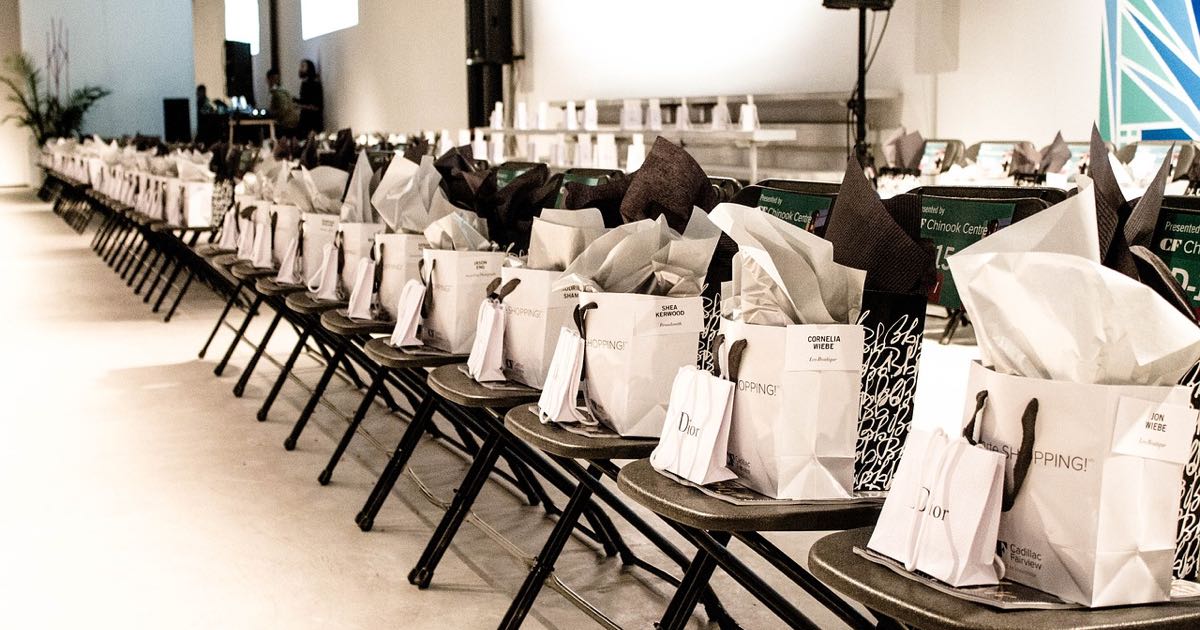
According to experienced corporate event planners, the most important aspects of conference planning are:
- setting result-focused goals;
- starting early with promotion;
- having the tools for exchanging information;
- establishing connections quickly.
However, while those aspects are important, you still need a way to get people to your booth or area.
Standing out from the crowd in a conference can be difficult. So, experienced conference organisers know that using conference giveaways to incentivize attendees can be very useful.
But how exactly can conference giveaways help?
Well, there are many reasons why it is a powerful tool if used the right way. Let’s explore some of them below.
Benefits of Conference Giveaways
A well-executed conference giveaways campaign can draw attention and leave a lasting impression for your audience.
But how exactly can they be beneficial?
Below, we’ll go over some of the most important advantages.
Increase Interest in Your Company
The primary goal of corporate event planners is to drive attendance and increase interest in the company. Corporate giveaways can help you drive traffic to your booth and reach and engagement goals for the conference.
The reason why giveaways work so well in driving traffic to your booth or section is that they are the most powerful incentive.
People love getting free stuff, especially if it’s something relevant and useful to them.
If you have promotional products that draw attention and get people talking, you’ll be well on your way to becoming the centre of attention in the conference.
Help with Brand Recognition
During trade shows and conferences, one of the main goals for any company is to get their brand remembered in the eyes of the target audience.
Growing your company can be difficult if your brand isn’t recognized in your marketplace. Therefore, you must use conferences as the perfect place to draw attention to your brand and become more visible.
If you can put together an effective conference giveaway campaign, you can draw attention to your company during the event. You can also generate a response on social media, as people start sharing the promotional products that they received.
This way, you can reach an audience much bigger than the one attending the conference itself and propel your company’s growth.
Positive Experience for Your Audience
Finally, you can’t underestimate the power of sharing positive experiences with the people that you want to reach.
Even if it’s a relatively simple conference giveaway, you are still offering a gift to your prospects. That will help them remember you in a positive light and might also have a reciprocal effect in the future.
Instead of being a company that the prospect has never heard of, now he will not only be familiar with your brand but will also remember the nice gesture.
He might even keep the gift for a long time if it’s useful and relevant to him.
How to Create an Effective Corporate Giveaway Strategy
We’ve gone through the main reasons why conference giveaways are so effective.
So now, let’s explore some of the more effective strategies that experienced conference organizers use in their campaigns.
The first step of putting together a giveaway campaign is determining your target audience.
It won’t matter how expensive or impressive your promotion is if:
the products that you choose aren’t relevant to the people that you want to reach;
they don’t make sense for the environment that you are engaging them in.
Take the time to understand who you’re dealing with and think about how you can match the theme and mood of the conference with what your brand can offer.
That way, you can create a cost-effective giveaway campaign that will draw attention to your brand and help your booth or section stand out.
Think About Your Goals
Once you know who you are dealing with, the next step is establishing your goals.
You need to specify what reaction you are trying to entice from your audience and then base your decisions on making that happen.
Companies often like to dream big with their giveaways, but that’s not always the right approach. Sure, it would be nice to give away something that the prospect will use for months or even years. But that’s not very realistic if you’re operating on a limited budget.
However, that doesn’t mean that you can’t leave a lasting impression.
The main goals of a giveaway campaign are:
- to draw attention to your company;
- cause an initial positive reaction;
- make sure that the prospect remembers your brand, even if they don’t use the giveaway that often.
Even if the giveaway gets thrown out in a few days, that doesn’t necessarily mean that the campaign is a failure. After all, you already made an impression by getting the prospect to take it.
Prioritize Quality
Once you know who you want to reach and have established your goals, it’s time to figure out the exact product that you’re going to give away.
We already discussed the importance of choosing something that:
- fits with the theme of the event;
- is useful or has a perceived value.
But another crucial aspect is ensuring that the product is of high quality.
Obviously, the biggest issue when thinking of products is the budget. You don’t want to overspend on a free giveaway, as it’s tough to measure the effectiveness of the campaign.
However, you still need to ensure that the products you use in the campaign are reliable and do not break easily. Otherwise, it could form negative associations with your brand, even if the giveaway didn’t directly relate to what you can offer.
It’s always a better idea to go with a smaller and simpler product that you know is of high quality. If you become over-ambitious, you may leave a bigger initial impression but end up disappointing your prospect later on.

Music festivals are a real staple of the British way of life. However, with ticket prices on the rise for some of the more major festivals, many people are being either priced out of attending or are opting to spend their money elsewhere.
Running your own music festival can be an incredibly fun and rewarding venture. Not only will you have control over literally everything – from the line up to the venue – but you will also provide your friends, family and locals with a fantastic event that could live long in their memory.
If you’re not sure where to get started with planning and hosting your own festival, don’t worry – using our helpful guide, we will point you in the direction. Follow these six simple steps and you’ll be well on your way to hosting your own music event.
Step 1: Nail the Venue
The venue you choose can make a big difference to how successful your event is. Think about your target audience and find a venue to match the numbers that you expect to attend. Also, consider the transport arrangements – ask yourself, for example, is there a car park available or a train station nearby? Are you wanting your guests to camp, or will it be a one-day festival? And how will your venue guard against any potential weather issues?
Once you know the answer to each of these questions, you will then be able to move forward with the venue choice. One popular option is a marquee tent, which can be erected more or less anywhere – whether it be in a field or at the back of a stately home. Choosing this type of venue can also be highly cost-effective, as many providers will fully decorate their interior, taking the stress out of needing to do it yourself. You could even think about hiring a few of them if you wanted to have multiple stages for artists to play on simultaneously.
Step 2: Nail the Music
Probably the most important part of a music festival, the line-up has to be great. However, deciding on who you want to play will depend on a number of things. From your budget to the genre of music, you will also need to think about how many artists you want to book in total, and calculate how long you would like each of them to play for. Likewise, you’ll want to make sure you don’t overpay your artists – think about your attendance and operational costs when working out which acts you can and can’t afford.
Once you’ve chosen your acts, you’ll need to think about the running order you want them to play in. Generally speaking, acoustic acts fit better earlier on in the day, whereas DJs and more well-known bands are better off saved until later on in the evening. Also, headliner acts should be booked as soon as possible so that the event can be marketed towards a wider audience. Find your perfect acts using websites like ReverbNation and The Unsigned Guide.
Step 3: Nail the Marketing
Organizing the perfect festival is one thing, but attracting people to it is another. In order to get people through the doors, you need to rely on marketing – whether that be handing out paper flyers in the street, or through an effective search ad campaign.
Put yourself in your audience’s shoes – what would attract you to a festival? Utilize social media channels to reach a wider audience and keep interested attendees regularly updated using videos, photos, line-up announcements, accommodation details, and so on.
Also, consider using a targeted advertising campaign, but make sure you use your budget effectively. If your festival is only going to be a local event, for example, there’s not much point advertising to audience members across the globe – think about the best ways to reach your target audience specifically.
Step 4: Nail the Décor
OK, so you’ve got the venue, line up and marketing nailed – now it’s time for the event itself. As we’ve already mentioned, some venue hire places may do the decorating for you themselves but, if not, it’ll be up to you to think about how you want the festival to look. This will very much depend on the style of event you are running, the location it’s based in, how sustainable you want it to be, and what time of day it’s taking place.
For example, if you are organizing a more general festival with marquee tents in a field somewhere in Devon, decorating your venue with solar-powered fairy lights, comfy seating options, and a neutral color theme could work well. Similarly, if you’re running a day-long death metal music event in a Shropshire-based town hall, a darker theme with innovative lighting options and more standing space could be a better fit.
Step 5: Nail the Event
When it comes to the day of the festival, you will need to ensure it runs as smoothly as possible – otherwise, it could affect how well your guests enjoy their time at your event.
Take it step-by-step: first, make sure that the transport and car parking arrangements are clearly signposted and well-organized. Second, make the check-in process as streamlined as possible, using a dedicated security team to organize queues and check bags. Third, ensure the line-up order runs successfully and that you and your team are well-equipped to deal with any last-minute changes.
Also, consider your event’s health and safety protocol. Ask yourself questions like, how do I want my guests to respond in an emergency situation? Or, what procedures and personnel do I need in place if a guest suddenly falls ill? Having a risk assessment and emergency plan is vital to ensuring your attendees stay safe during the festival, and will also reassure them that you’ve got everything under control.
Step 6: Do it all Again!
Once the festival is over and the dust has settled, it’s time to think about doing it all over again! While the event is still fresh in people’s minds, utilize social media to post relevant video highlights and photos to ensure it lives long in their memory. That way, when you come to marketing a follow up festival, your previous guests will respond favorably.
The more you build up a relationship with your guests, the more likely they will be to want to attend your festival. Analyze what went right and wrong at your previous festivals, and learn from them for the future. If certain acts went down better than others, for instance, think about getting them back again in the future. Or, if you spent a large portion of your budget on bespoke seating options, but found via a feedback form that nobody used them, save money on them next time around by implementing less of them.

Conferences and comedy are made for one another. It is the perfect symbiosis
of engrossing content and engaged crowds. Hilarious keynote speakers and
breakout session leaders are a frequent highlight of the conferences I’ve
attended. But while their speeches and presentations are the traditional and
dependable method of humor delivery, there are many other outside-the-box
areas that can be mined for jokes. Funny speakers enhance your event no doubt,
but here are 9 additional areas to elevate your programming from funny
contributors to funny conference.
1. Email Marketing
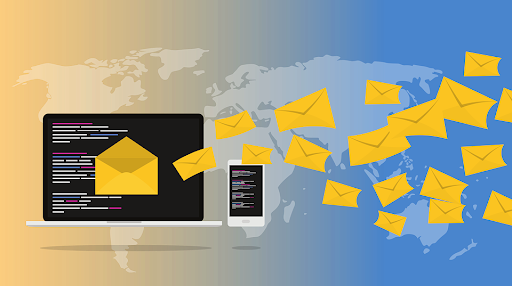
A date is set and it’s time to pack the house. One of the major ways you’ll do this is through your nurturing list, and nothing nurtures an audience like strategically placed email humor. I recommend starting as early as your subject lines:
Ex: Get your ticket now for our nutrition conference - Your order takes just 2 minutes and burns 3 calories!

This one is more obvious, but important to include. Tweets, grams, snaps, and any other short form marketing content is your best friend in getting your word out. Easy to create, these tiny posts can be “the little engine that could” when it comes to exposure for your event. Punch these posts up!
Ex: How will we make this year’s yoga conference the best yet? By bending over backwards!

Within social media, hashtags in particular help build your community and can be built stronger with comedy. Like any memorable content, a funny hashtag will see greater engagement by your participants.
Ex: Can’t wait to see you at our upcoming carpentry conference. #IfYouBuildItYOUWillCome
4. Conference App
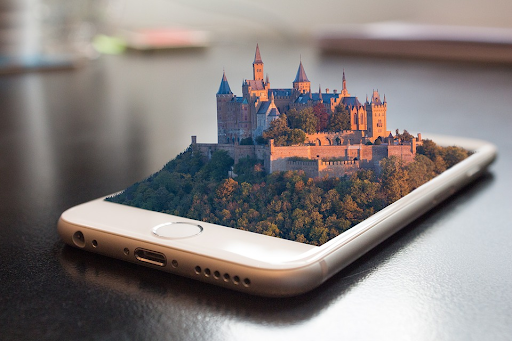
Unless it’s a convening for World War II Veterans, it’s likely you’ll have a conference app! Menus, push notifications, chat features, all of it can be enhanced with laughter-inducing language.
Ex: Attention attendees, please take a moment to locate your emergency exits. To make this memorable for you, we have marked each one with a keg.
5. Badges and Titles

Whether an employee or an attendee, everyone has to wear one of those self-identifying lanyards. All eyes will be on these everywhere you go, which makes them the perfect medium for a one-liner or gag.
Examples:
- (title): Logistics Legend
- (gag): Make your employee badges MASSIVE. What’s more hilarious than a sandwich board name tag?!
6. Signage/Area Names

Your conference has a lot going on in many different locations. These places all need names. These names are ripe for riffs!
Examples:
- Dining Hall -> Hunger Haters Haven
- Main Ballroom -> Keynote Cave
- Coffee Station- > The People’s Republic of Caffeine
7. Food
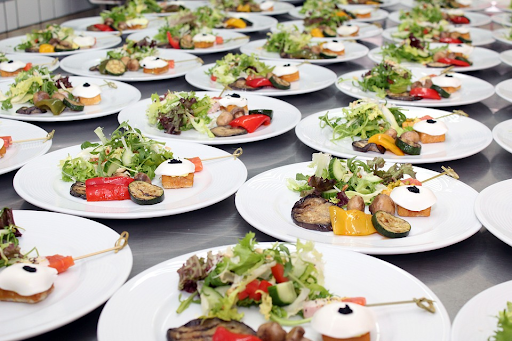
Don’t just name the dining hall, what about all of the signage within this space? There are a lot of restrictions out there, which means a lot of material to work with!
Examples:
- Gluten Free -> No Gluten, No Cry
- Dairy-Free -> Wary O’ Dairy
- Nut-Free -> No Nuts (sane items only)
- Vegetarian -> Plant Slaughterers
8. Social Activities

Your conference program often starts very early and runs well into the night with many social activities. Just because these are formal, does not mean their descriptions can’t be funny!
Ex: Tonight’s group dinner is sponsored by the Networkers Association of America, and tomorrow’s breakfast is sponsored by Networkers Anonymous.
9. Awards

Peer recognition is a fulfilling and important practice in any sector. Prestigious awards may frequently culminate at your yearly conference(s). Spice up those accolades with some fun new names!
Examples:
- Top Performer -> The ‘Serena Williams of Sales’ Award
- Lifetime Achievement -> The ‘Goldtimer’ Award
- Outstanding Leader -> The ‘Actually Likeable’ Award
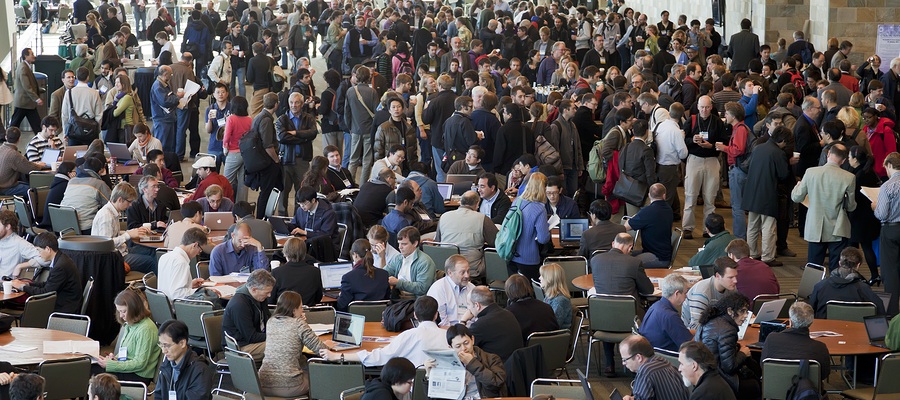
Running a successful conference comes down to two key things: planning and promotion.
Without thinking about your marketing
strategy
before the event starts, you could leave yourself doomed to fail – after all,
how are you going to get people through the doors if they don’t know the
conference is even on?
The best way to get people interested and booked to attend is by utilizing
promotion
channels. In
essence, the more people hear about your conference, the more likely they will
be to come along. Here are three keys promotion methods to think about:
1. Start early
A bit of a no-brainer really but make sure you don’t leave your conference
promotion until the very last minute. You need to ensure that people have time
to come across the event, so the earlier you start implementing your promotion
strategy, the better.
One great way of getting guests on board early is through an early bird
ticketing system – offering a cut price ticket to those attendees who book in
advance. Doing so will not only help keep track of your guest numbers in
advance but, through word of mouth, could lead to an increase in numbers as
well.
Similarly, old-fashioned print-based methods can be equally effective at
advertising your event. By designing, printing and distributing bespoke
adverts, such as flyers, event leaflets or posters, this will help ensure your
event is seen by as many people as possible. Many printing specialists, such
as YouLovePrint, offer free online software
which automatically checks for areas of concern in your design and will warn
you if the picture quality is low before printing. Just make sure that each
advert you print has a call-to-action on it – make it easy for potential
attendees to know how they can pick up a ticket.
Social media should be your best friend when it comes to promoting your
event. With the world becoming more and more technology-obsessed and
interconnected than ever before, the way in which people find out about events
has forever been changed. If your event isn’t published and promoted on social
media, you could miss out on A LOT of potential attendees.
Here are some of the main ways to utilize social media in your promotion strategy:
Facebook
One of the easiest and best ways to promote your conference comes via
Facebook. To do so, there are two key methods to think about: first, create an
event through your business’ page and promote it to your followers. Second,
set a budget for a Facebook advertising
campaign,
so that you can target and attract interested people to your event, who may
not have necessarily known about your business before.
Video Marketing
One of the most powerful content tools out there, video marketing is predicted
to drive 82% of the global internet by
2021. Therefore,
utilizing it as part of your promotion strategy can make a huge difference, by
greatly increasing your event’s exposure. Whether you produce a teaser video
before the event, a Q&A session with the main speaker, or something else
entirely, videos have the potential to connect with people on an emotional
level and make it easier to understand who your event is aimed at.
Create a #hashtag
By creating a
hashtag for your
event, your conference will receive more and more exposure each time somebody
Tweets, shares a post, or uploads an event-related video. However, to do this
effectively, there are a few golden rules you need to follow. These include:
- Keep the hashtag short and memorable.
- Make it fun.
- Don’t overthink it.
- Use acronyms (where possible).
- Encourage people to use it!
3. Blog, blog, blog
Another sure-fire way of promoting your conference is by blogging about it
before, during and after the event has happened. Not only will this help keep
your attendees updated, but it will also validate your
expertise
in the industry you work in, which could encourage more people to come along.
For each speaker you book, blog about it. For any updates related to timetable
changes, blog about it. To express an opinion on industry-related matters,
blog about it. In general, the more you can blog, the more likely it’ll be for
your event to be seen by somebody. It all comes down to three things:
exposure, exposure, exposure.
Summary
So, there you have it – three fantastic ways of ensuring your event gets seen
and, hopefully, attended by the masses. The key things to remember are to plan
early and utilize the heck out of social media – Facebook in
particular. Blogging can also be a fantastic way of keeping attendee’s updated
and ensuring your conference gets the exposure it deserves.
Don’t let those months of planning for your event go to waste – nail your
promotion strategy and help ensure you get those guests through the doors.
Next page
Page 1 of 9
 by
Dakota Murphey
on
by
Dakota Murphey
on








 by
Sarah Hill
on
by
Sarah Hill
on


 by
Charlie Nadler
on
by
Charlie Nadler
on










